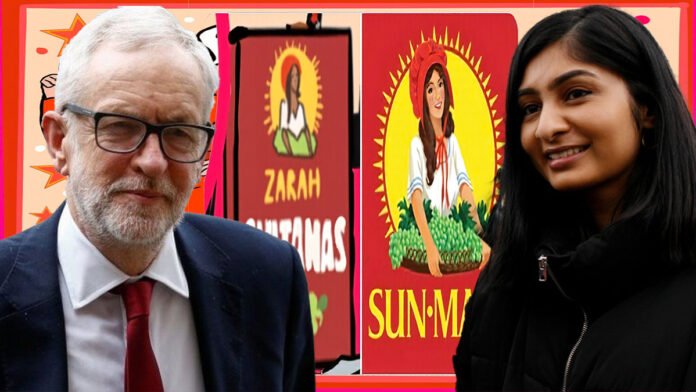
The Raisin Box Republic: How Britain’s Liberal Press Perfected Respectable Racism
When did we decide that racism becomes acceptable if wrapped in sufficient layers of plausible deniability and executed with a public school accent? The question haunts me as I contemplate The Observer’s grotesque cartoon depicting Zarah Sultana as a caricature on a box of raisins, a piece of visual bile so nakedly prejudiced that even its perpetrators felt compelled to slink away in embarrassment after publication.
Yet the real scandal is not that such poison found its way into Britain’s oldest Sunday newspaper. The true outrage lies in our collective pretence that this represents some aberrant lapse in editorial judgment rather than the logical culmination of decades of cultivated contempt for anyone who dares challenge the established order while possessing the unforgivable combination of non-white skin and socialist convictions.
The cartoon, crafted by Saffron Swire, daughter of ex-Tory MP Sir Hugo Swire and beneficiary of inherited privilege, transformed Sultana into a racialised stereotype masquerading as satire. The image formed part of a mock invitation to a fictional Jeremy Corbyn party, celebrating the announcement that Britain’s most principled politicians are abandoning Labour’s moral wasteland to build something worthy of the name.
Sultana’s response cut through the establishment’s protective fog with surgical precision: “Brownfacing a box of raisins and mocking my surname. Exactly what you’d expect from a right-wing hack who is the daughter of an aristocrat and ex-Tory MP.” Her controlled fury exposed not merely the cartoon’s racism, but the entire ecosystem of privilege that produced and published it.
The Observer’s subsequent behaviour proved even more revealing than its original sin. The paper quietly removed the cartoon and issued a spineless non-apology that refused to name Sultana directly, as if acknowledging their target might somehow compound their embarrassment. This cowardly response epitomises the moral bankruptcy of Britain’s liberal establishment, eager to commit racist sins but too craven to own their consequences.
The historical parallels are both instructive and depressing. British newspapers have long perfected the art of acceptable bigotry, understanding that explicit racial slurs have become socially unacceptable while coded attacks remain perfectly permissible provided they target the politically inconvenient. From the Daily Mail’s “swamping” headlines of the 1970s to today’s dog-whistle commentary about “imported” politics, the techniques have evolved while the underlying malice remains constant.
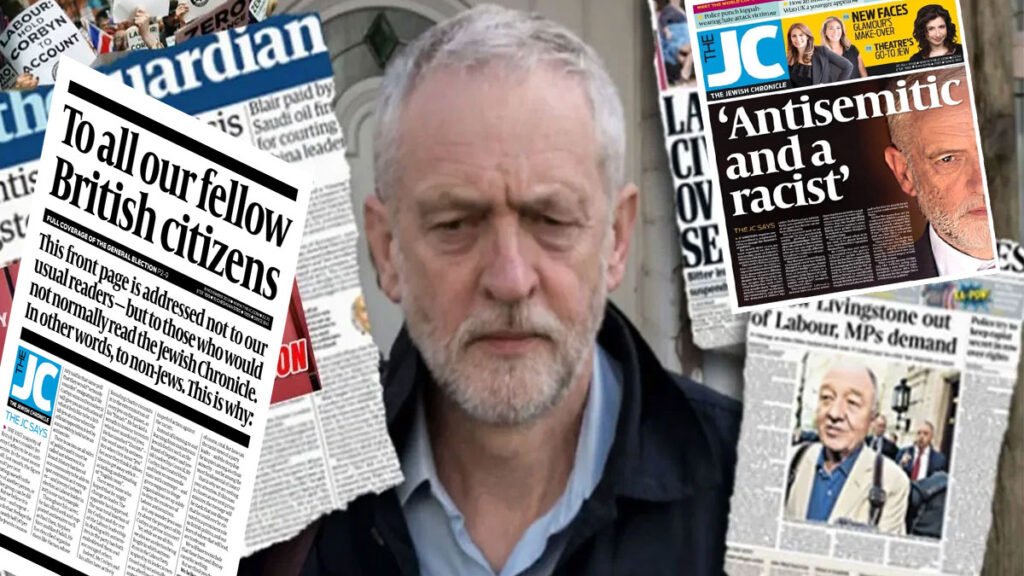
What distinguishes the current moment is the liberal press’s enthusiastic participation in this degraded discourse. The Observer, which positions itself as the thinking person’s alternative to tabloid vulgarity, has demonstrated that respectability politics can launder racism just as effectively as populist rabble-rousing. When the supposed guardians of enlightened discourse traffic in racial caricature, the centre cannot hold because it has already surrendered its moral authority.
Some will argue that political cartoons have always employed exaggeration and that public figures must expect satirical treatment. They will insist that accusations of racism dilute the term’s meaning and that we risk creating a climate where legitimate criticism becomes impossible. These concerns deserve acknowledgement, but they fundamentally misread the nature of the transgression.
The issue is not that Sultana faced satirical treatment, but that this “satire” explicitly racialised her appearance while mocking her name’s Middle Eastern origins. No white politician would find themselves transformed into a food product caricature, emphasising their ethnic characteristics. The cartoon’s authors understood precisely what they were doing, weaponising racial difference to delegitimise political opposition.
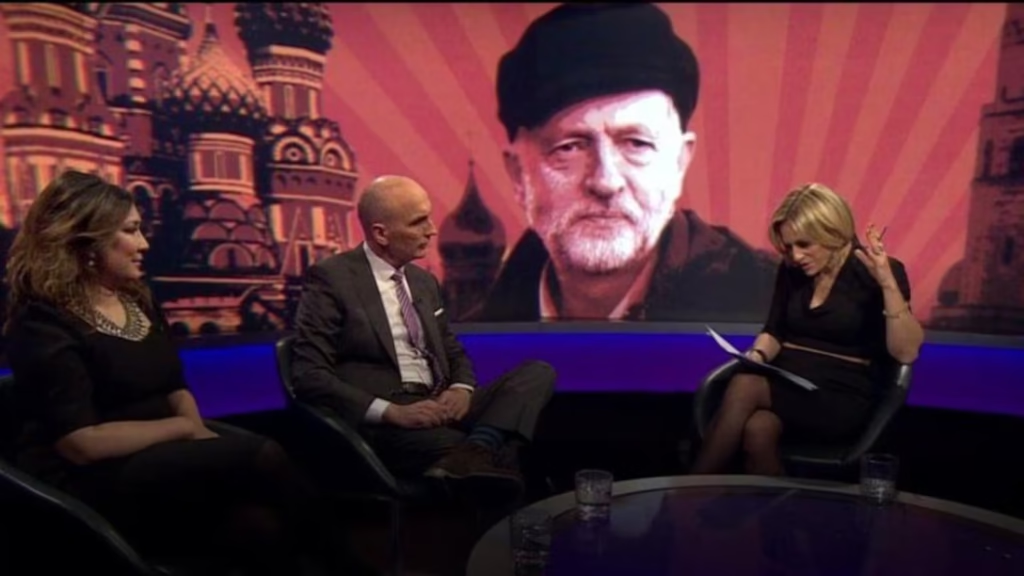
Moreover, the timing proves particularly revealing. Sultana’s decision to leave Labour followed her principled stand against the two-child benefit cap, a policy that drives children into poverty while Labour leadership shrugs with managerial indifference. Rather than engaging with her substantive critique of governmental cruelty, The Observer chose to attack her identity, a classic diversionary tactic employed when the powerful have no coherent response to moral challenge.
This episode illuminates the broader crisis facing Britain’s political establishment as Corbyn and Sultana prepare to launch their new movement. The comfortable assumption that TINA: There Is No Alternative, could permanently suppress democratic socialism has proven embarrassingly premature. Faced with politicians who refuse to accept poverty as inevitable or Palestinian suffering as acceptable, the establishment has revealed its true character.
The response to this new political formation has been instructively hysterical. The same commentators who spent years insisting that Corbyn represented an extremist aberration now panic at the prospect of his return to relevance. Their desperation manifests in increasingly crude attempts to delegitimise anyone associated with genuine left-wing politics, hence the transformation of a sitting MP into a racist food mascot.
Corbyn’s statement announcing their collaboration struck precisely the right note: “Real change is coming. One year on from the election, this Labour government has refused to deliver the change people expected and deserved. Poverty, inequality and war are not inevitable.” This message terrifies an establishment that profits from widespread acceptance of these supposed inevitabilities.
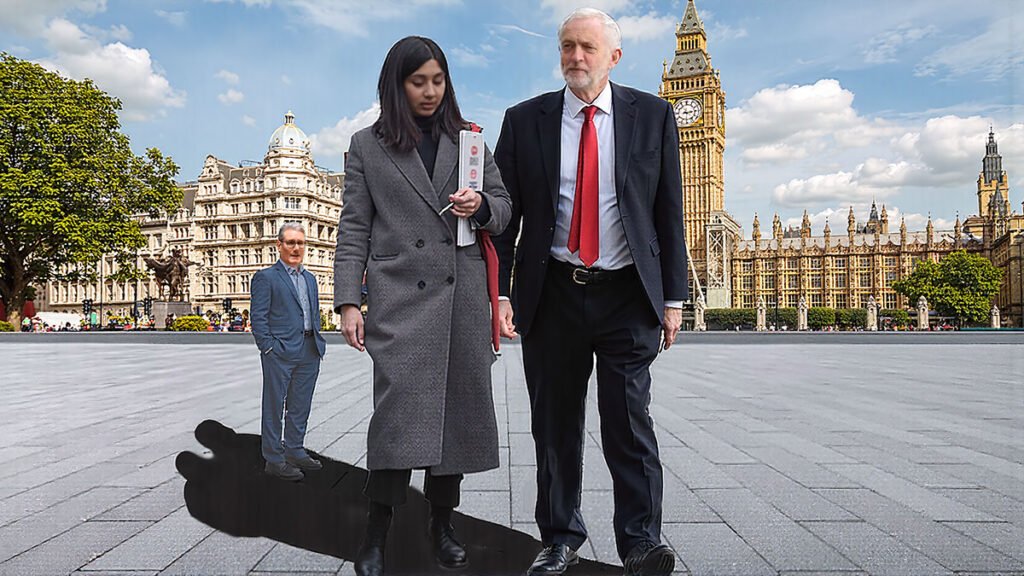
The broader implications extend far beyond electoral politics. When Britain’s liberal press embraces racial caricature to attack political dissidents, we witness the collapse of the post-war consensus that racism has no place in respectable discourse. The Observer’s cartoon represents not an isolated mistake but a deliberate signal that certain targets remain fair game for any attack, however degraded.
This normalisation of racist discourse against the politically inconvenient follows a predictable pattern. First, the establishment identifies individuals whose politics threaten comfortable assumptions. Then, it systematically undermines their legitimacy through personal attacks that avoid engaging with their substantive arguments. Finally, it expresses surprise when someone points out the obvious racism inherent in these tactics.
The consequences reach beyond immediate political considerations. When newspapers that lecture readers about tolerance publish racial caricatures, they license broader social regression. If The Observer can transform a British MP into a racist stereotype, what prevents similar treatment of any minority voice that challenges power?
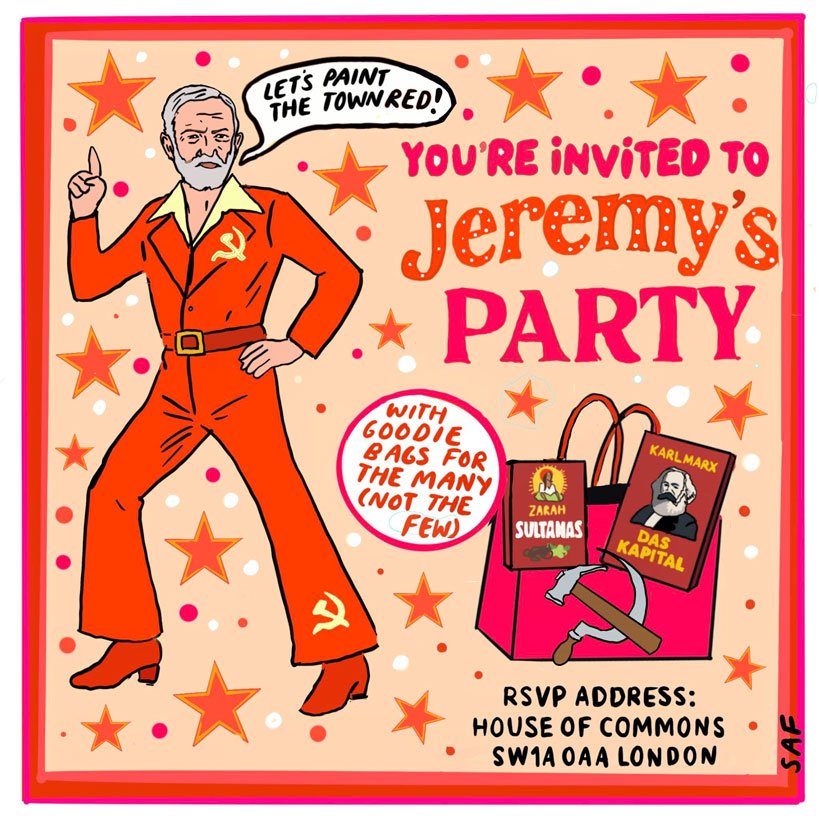
Yet perhaps the cartoon’s publication contains an inadvertent gift. By revealing their true character so blatantly, the establishment media have stripped away any remaining pretence about their commitment to equality or democratic values. The mask has slipped, and we can see the sneering contempt that always lurked beneath their pious proclamations.
Sultana and Corbyn’s emerging movement threatens this cosy arrangement precisely because it refuses to accept the established order’s fundamental assumptions. Their politics rest on the radical proposition that children should not go hungry in the world’s sixth-largest economy, that wars should not be funded with taxpayer money, and that politicians should serve constituents rather than corporate donors.
The racist backlash they face merely confirms that their challenge strikes at the heart of power’s comfortable arrangements. When the establishment resorts to racial caricature, it signals the poverty of its intellectual resources and the bankruptcy of its moral position.
Unfortunately, we can all expect much more and much worse….
Support Independent Journalism Today
Our unwavering dedication is to provide you with unbiased news, diverse perspectives, and insightful opinions. We're on a mission to ensure that those in positions of power are held accountable for their actions, but we can't do it alone. Labour Heartlands is primarily funded by me, Paul Knaggs, and by the generous contributions of readers like you. Your donations keep us going and help us uphold the principles of independent journalism. Join us in our quest for truth, transparency, and accountability – donate today and be a part of our mission!
Like everyone else, we're facing challenges, and we need your help to stay online and continue providing crucial journalism. Every contribution, no matter how small, goes a long way in helping us thrive. By becoming one of our donors, you become a vital part of our mission to uncover the truth and uphold the values of democracy.
While we maintain our independence from political affiliations, we stand united against corruption, injustice, and the erosion of free speech, truth, and democracy. We believe in the power of accurate information in a democracy, and we consider facts non-negotiable.
Your support, no matter the amount, can make a significant impact. Together, we can make a difference and continue our journey toward a more informed and just society.
Thank you for supporting Labour Heartlands








